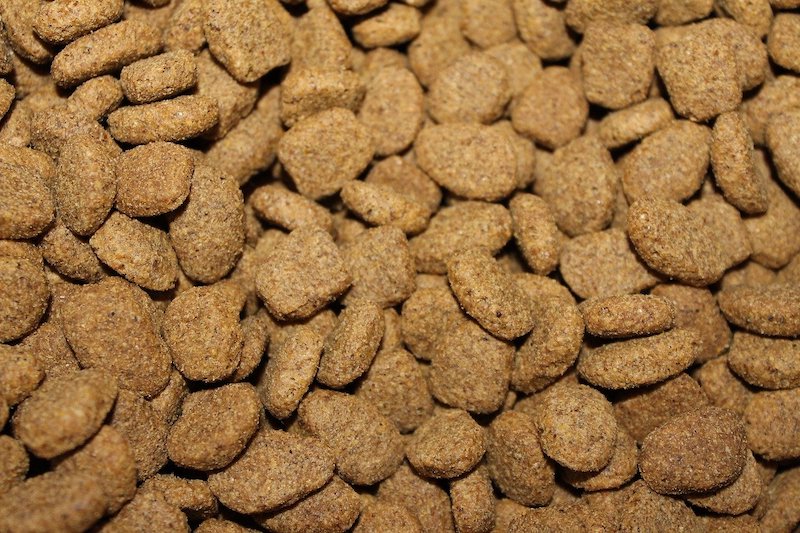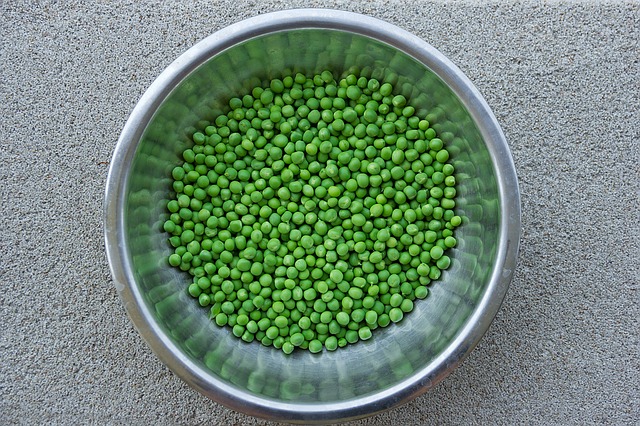
by Katie McGee, DVM
You may have heard bits and pieces about avoiding grain-free or boutique brand diets for your pets in order to avoid heart disease. We’ve written about grain-free diets before, and there has been a report by the FDA about pet foods and dilated cardiomyopathy to share information on what we currently know. Not all of the diets are grain-free and not all grain-free diets are reported on this list.
I recently attended the Veterinary Meeting & Expo (VMX), a national veterinary conference, in Orlando, Florida. Dr. Chris Stauthammer, DVM, ACVIM (Cardiology) gave a great lecture to clarify many questions that remain for the veterinary community and pet owners about the link between pet foods and dilated cardiomyopathy. I am hoping that by sharing the main takeaways from this, I can help our clients navigate diet decisions for their pets when it comes to this new concern.
Some previous occurrences in the veterinary field influenced our initial thoughts on the latest diet findings. Back in 1987, veterinarians discovered a nutritional concern with taurine in cats in a federal laboratory. Taurine, which is higher in red meats, is very important for heart and retinal health. They found that cats fed chicken and rice were being diagnosed with dilated cardiomyopathy (DCM), a condition that involves expansion of heart chambers and less effective pumping and distribution of blood. We learned that cats cannot produce their own taurine and need proper levels in their diet. Upon correcting this deficiency, the incidence in cats greatly improved.

Modern pet foods and dilated cardiomyopathy
In 2017 there was an increased incidence of DCM in golden retrievers, 1 to 2 years of age. This is a disease process that is not typically common in young golden retrievers. Signs can first be detected as a heart murmur or arrhythmia during a veterinary visit. More progressed cardiac changes can result in cough, increased respiratory effort, and even respiratory distress. Further diagnostics can indicate cardiac enlargement and changes consistent with DCM.
DCM is more common for large dog breeds like Doberman Pinschers, Great Danes, or the Irish Wolfhounds.
Before long, all dog breeds seemed to have cases of DCM and they were being fed boutique, exotic ingredient, grain free diets (“BEG diets”). At first, the thought was that perhaps this is due to a taurine deficiency, much like we discovered in cats in the 1980’s. However, only 42% of the affected dogs across many breeds actually had a taurine deficiency.
Grain-free is not the issue
The FDA studied this concern in 2018 and has since discovered that the issue is NOT exclusively “grain free” or “BEG diets”. It is NOT a taurine deficiency. The current problem IS with diets that contain peas, lentils, legumes, seeds, and/or potatoes as primary ingredients (i.e. early on in the ingredients listing, often in the first 10). Ninety-one percent of the diets listed by the FDA are “grain free”. Again, though there is a link between pet foods and dilated cardiomyopathy, the concern is not with “grain-free”, but rather with food/diets containing peas, lentils, legumes, seeds, and/or potatoes as primary ingredients. Diets with these primary ingredients have been linked to DCM.

Don’t fill your dog’s bowl with peas—avoid dog foods with peas, lentils and other legumes, as well as potatoes, listed as a primary ingredient.
These findings are driven home by the fact that supplementing grain, meat, or taurine does not correct the disease for most cases. Most dogs with evidence of cardiac changes respond in 3-6 months after a diet change. Cardiac function can completely normalize. However, some dogs with more progressed cardiac changes could need lifelong medication and monitoring. The treatment is a diet change to a diet without the aforementioned peas, lentils, legumes, seeds and/or potatoes as primary ingredients. Taurine can be supplemented as well if it is determined to be deficient for that individual patient.
Your veterinarian can help
This is also a great reminder for veterinary professionals to discuss diet when you bring your pet to us. If you have questions, your veterinarian is your best resource. About 50% of diets on the FDA list have normal taurine levels. Taurine levels can be obtained from blood sampling if indicated.
If a dog has developed cardiac changes, taurine levels can be checked. If taurine is low in the blood system, this can be supplemented in addition to a diet change. A veterinarian can also refer patients to a veterinary cardiologist. Diagnostics can be performed to ensure proper diagnosis and make sure that a patient does not have other causes of cardiac disease outside of this diet concern.
With awareness of primary ingredients to avoid, diet changes can be safely made. Diet changes can be made over about a week, by gradually mixing the new diet with the current diet. This can be done to avoid an abrupt change and the potential for vomiting or diarrhea.
If your pet has been fed a diet on the FDA list or with the known primary ingredients to avoid, there’s no need to panic. While this finding is concerning, it is certainly not affecting all dogs fed these diets. The first step can be as simple as a discussion with your veterinarian and physical exam for your pet. Your veterinarian can help determine if there is any current concern for heart disease or need for diagnostics or referral. They can also make recommendations for diet adjustments.
In order to prevent heart disease associated with diet, avoid legumes, peas, seeds, and potatoes as primary ingredients. Grain-free isn’t the issue; those grain-free diets just happen to have the list of ingredients to avoid.
Recent Posts
About Us
Ann Arbor Animal Hospital is a locally-owned animal hospital operating for over 90 years in Ann Arbor, MI.
